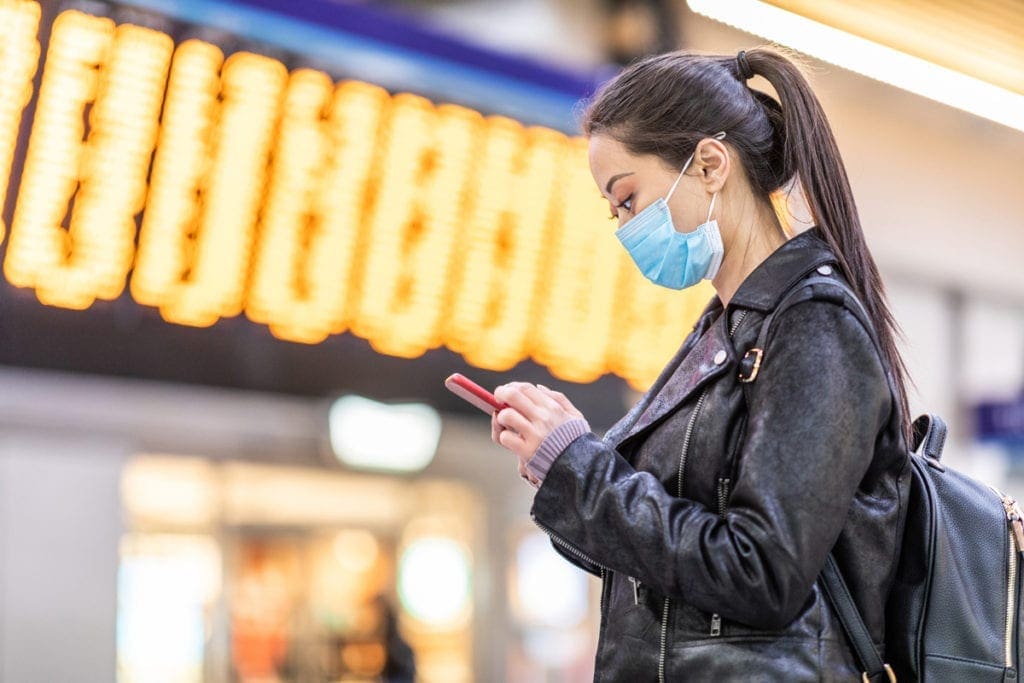
Face coverings on public transport – and for hospital staff, outpatients and visitors – will be compulsory in England from today.
Anyone travelling by bus, train, ferry or plane in England should wear a face covering from today – to help reduce the risk of coronavirus transmission.
The new rules coincide with a further easing of lockdown – including the return to class of some secondary school pupils and the reopening of non-essential shops.
The government stresses people should continue working from home if possible. If you can’t work from home then the government says you should avoid public transport. You should try to avoid rush hour if you do use public transport.
GWR ‘masks’ high-speed train reminds passengers to wear face coverings. Photo: GWRHelp
Some passengers will be exempt from the new rules including children under the age of 11, people with disabilities, those with breathing difficulties or anyone travelling with someone who relies on lip-reading.
If it is “reasonably necessary” for you to eat or drink you can remove the face covering to do so.
The rules will apply only on public transport – not while waiting – but the rail industry will ask people to cover their face as they enter a station.
People could be refused travel if they don’t follow the rules. They could also be fined, but this will be the last resort.
Transport Secretary Grant Shapps said: “We’ve seen how the COVID-19 pandemic has unlocked a community spirit right across our nation, and we now need to extend this to our transport network so we can help keep one another safe.
“If you do need to travel, in the same way that you would pick up your phone, wallet or keys when you leave the house, please remember to bring a face covering.
“Our fantastic transport staff will be on hand to provide help and advice, and free coverings will be given out at key train stations to help kick-start this initiative. This is another small, sensible step we can all take to help us defeat this virus.”
The Regulations, which will be made under the Public Health Act 1984 and come into force on Monday, will make face coverings mandatory on buses, coaches, trams, ferries, aircraft and trains. In addition, some operators will amend their conditions of carriage, allowing them to enforce the requirement in a similar way to the rules on having a ticket for travel, meaning they can implement the changes in the way that works best for them.


